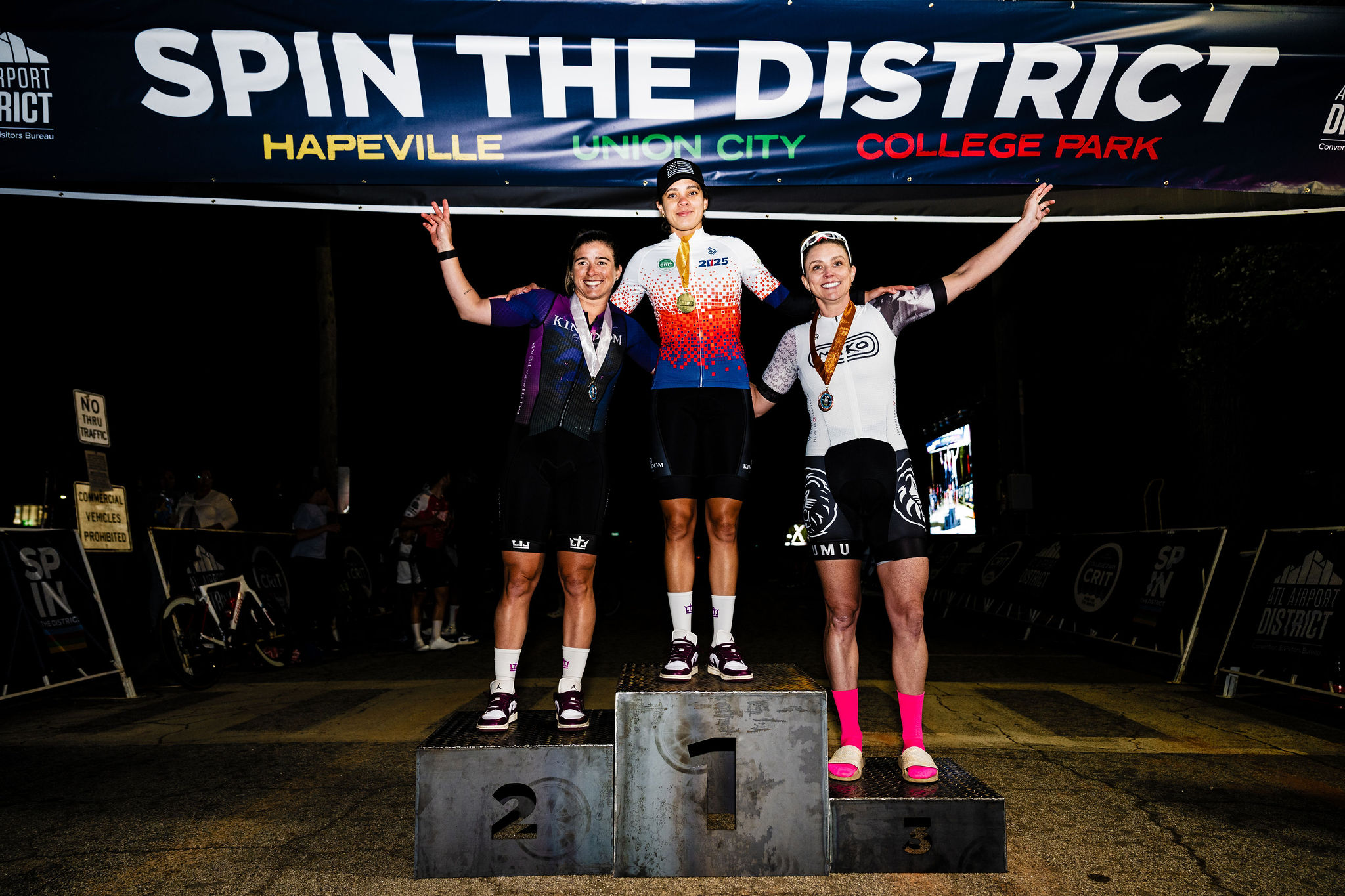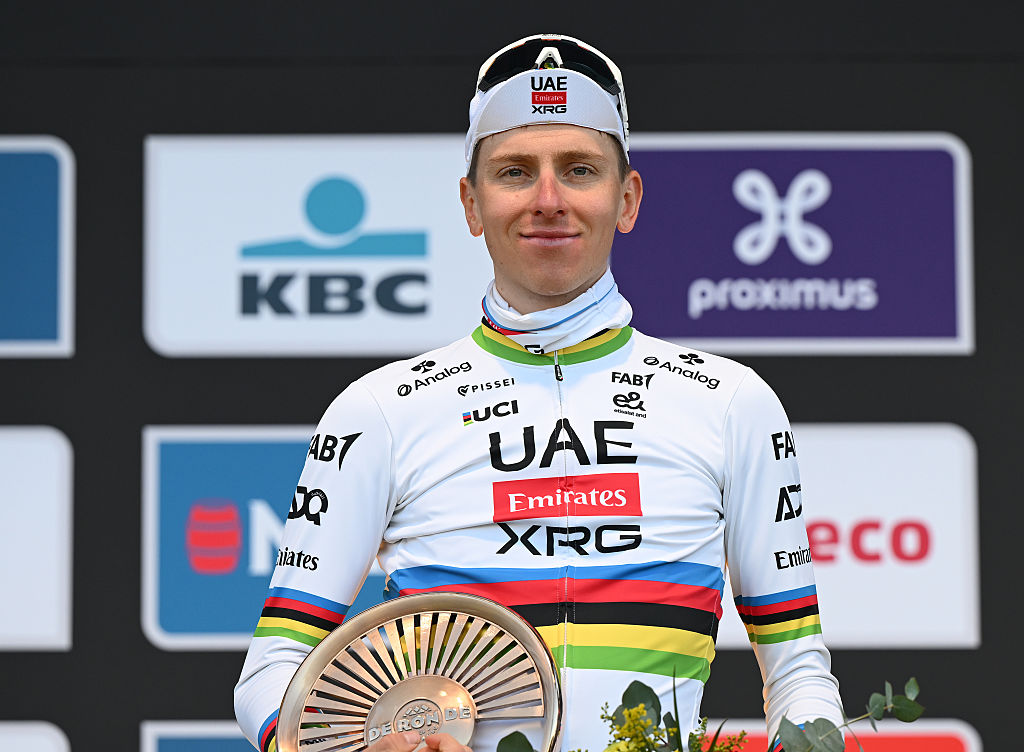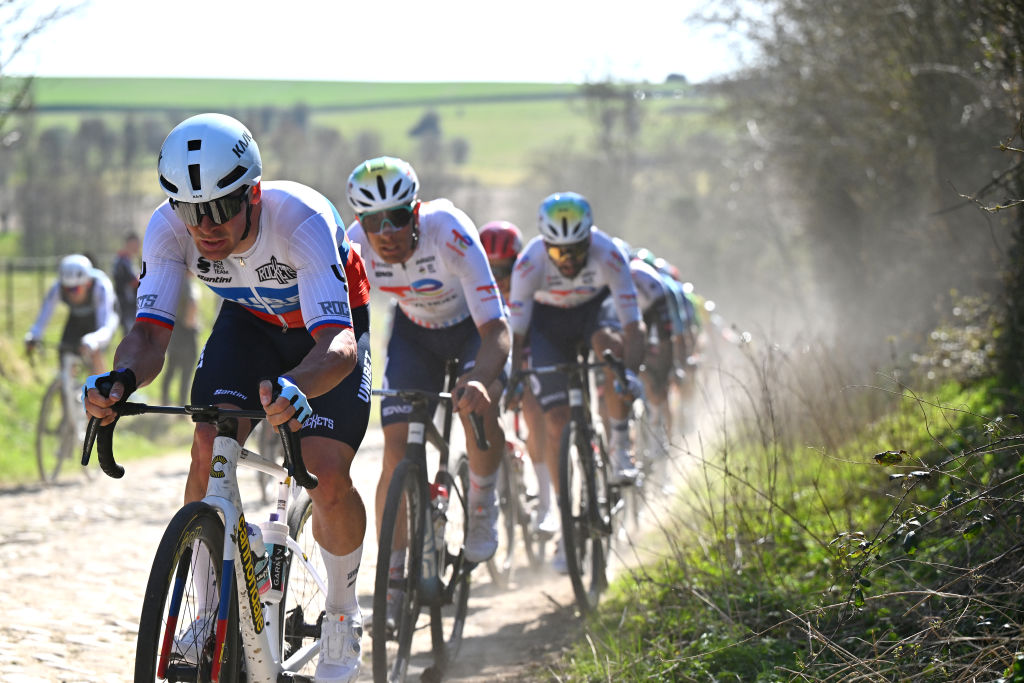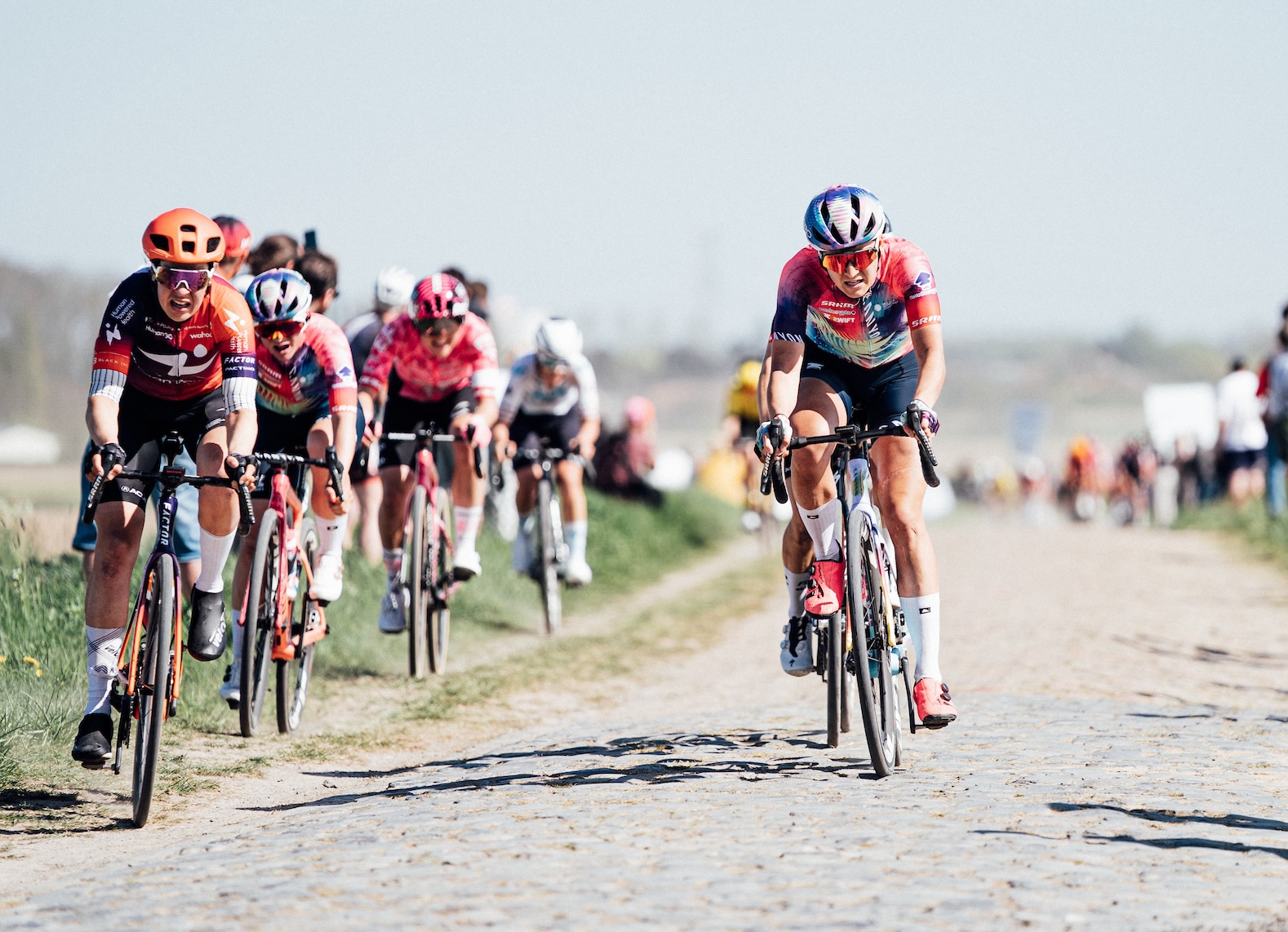Giro d'Italia 2018: The Essential Guide
A detailed look at the route and riders to watch for the 101st edition of the corsa rosa
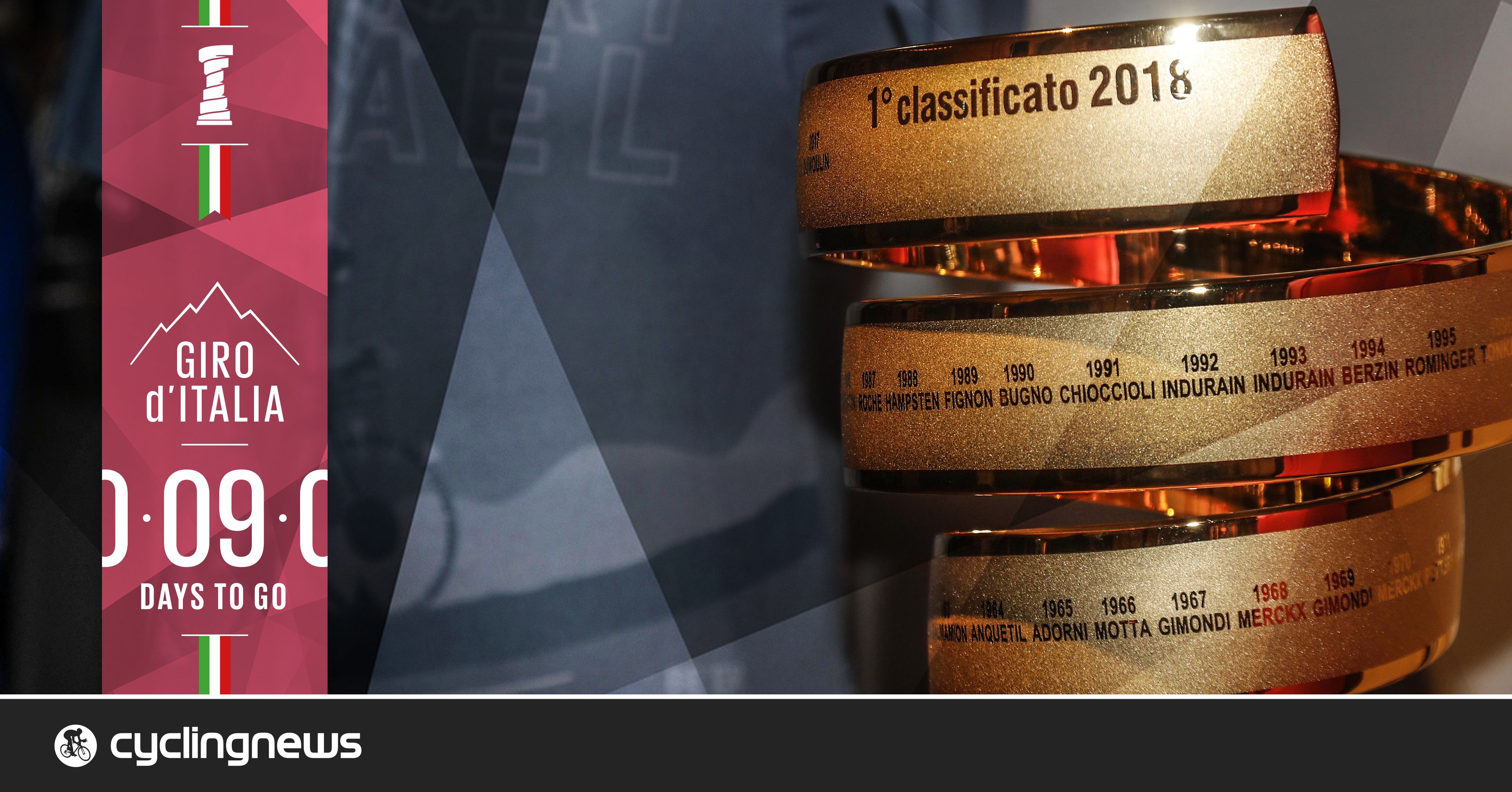
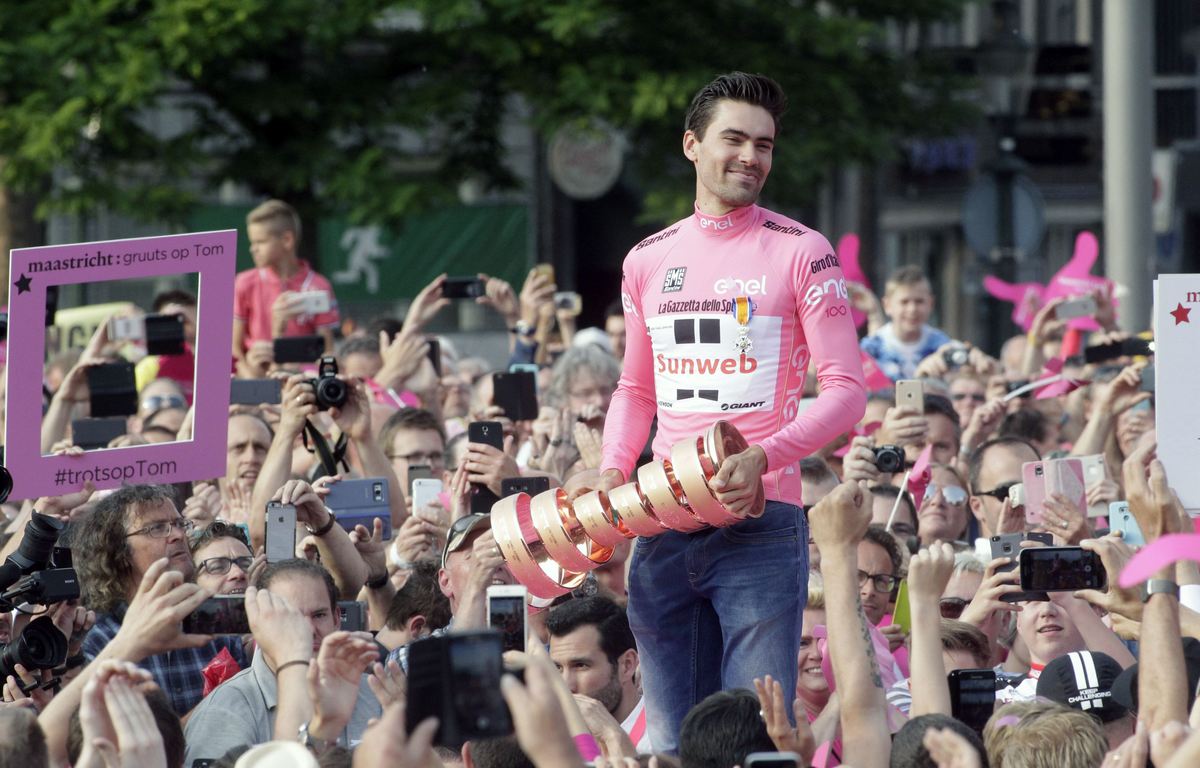
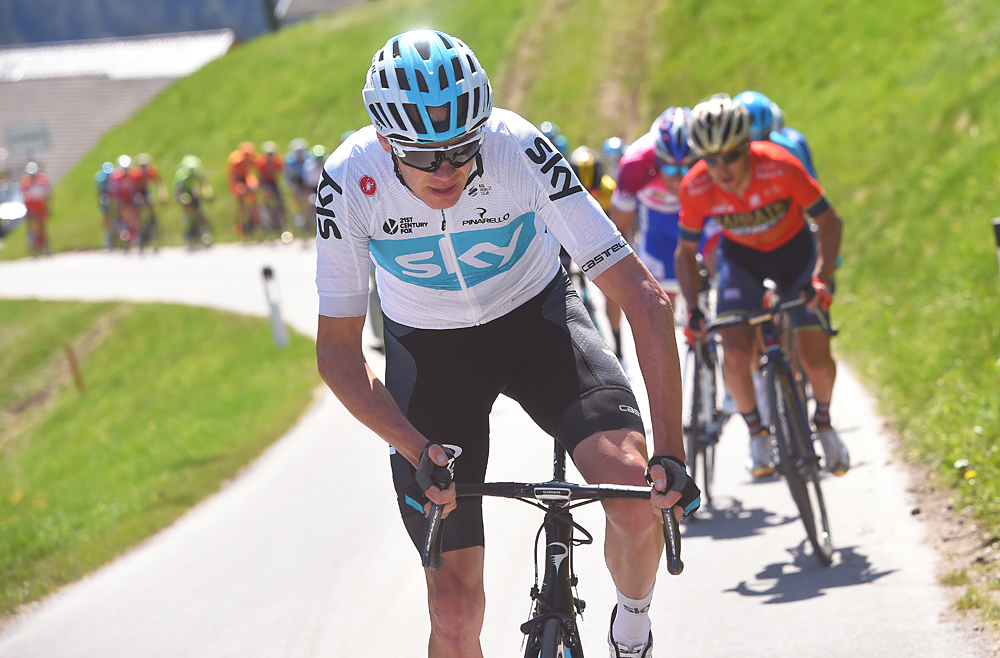
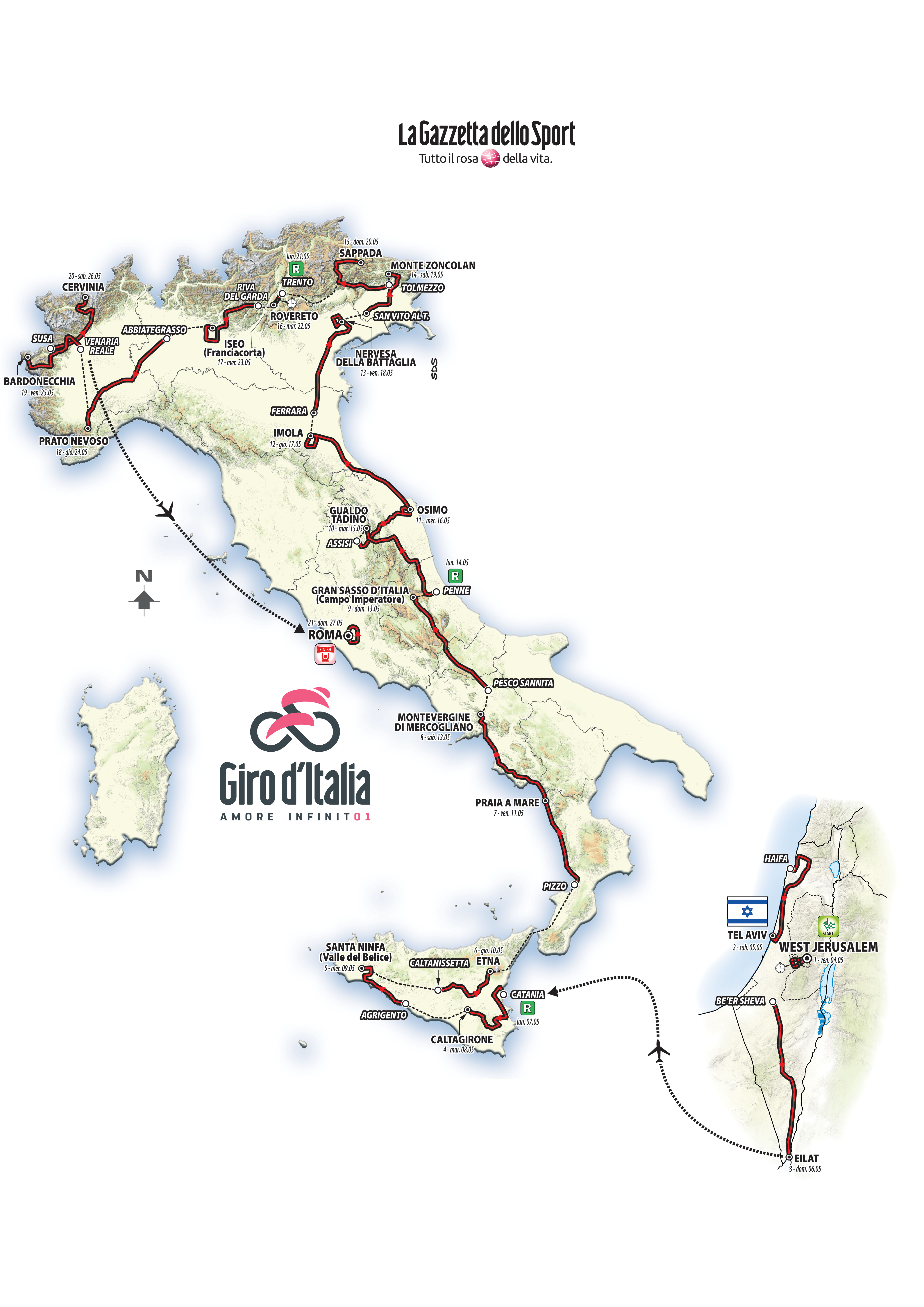
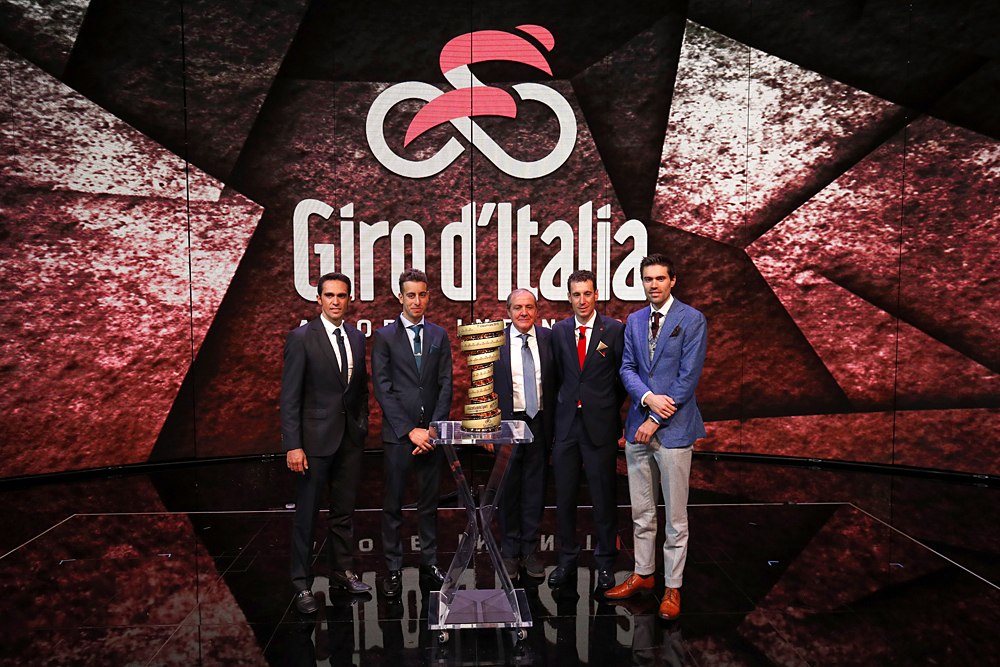
There is no ignoring from the elephant in the room ahead of the 2018 Giro d'Italia. This will not be an ordinary edition of the race, but rather one set to be conditioned by the presence of Chris Froome, whose efforts and results may ultimately count for nothing if the Team Sky rider is sanctioned for his adverse analytical finding for salbutamol during last year's Vuelta a España.
Sometimes, you should be careful what you wish for. RCS Sport and the local organising committee for the Israeli Grande Partenza courted Froome heavily last Autumn, and the Briton – after reportedly agreeing an appearance fee rumoured to be in the region of €2 million – eventually confirmed his intention to ride the Giro in a pre-recorded message at last November's presentation. Two weeks later, news of Froome's salbutamol case broke, and, all of a sudden, his participation in the race became rather more problematic.
For RCS Sport, it is, as Yogi Berra would have put it, a case of déjà vu all over again. In 2011, Alberto Contador raced – and won – the Giro despite a positive test for clenbuterol at the previous year's Tour de France. In 2012, the Spaniard was sanctioned and stripped of his results, including that Giro, which was later awarded to Michele Scarponi.
With no resolution in sight in the Froome case, and with RCS Sport unable to bar him from riding, race director Mauro Vegni has stated his desire for the Briton's results from this Giro to stand regardless of whether he is later sanctioned. The problem for Vegni, however, is that such a decision is not in his gift.
Froome could, of course, avoid at least some of the furore by recusing himself from competition until his case is resolved, but despite claiming in December that he took his “leadership position in the sport very seriously”, the Sky rider has firmly placed his own interests ahead of those of the sport by continuing to race, and he will line out in Israel on May 4. So it goes.
For better or for worse, then, the Giro will be the site of a duel between Froome and defending champion Tom Dumoulin (Sunweb), the man felt by many to be the rider most likely to break Team Sky’s dominance at the Tour de France.
Not that this will simply be a two-way tussle. Thibaut Pinot (Groupama-FDJ), always an inspired performer on Italian roads, was fourth last year and will be buoyed by his recent Tour of the Alps win. Italian champion Fabio Aru (UAE Team Emirates) returns to the Giro after a three-year absence. Miguel Angel Lopez (Astana) lines out for his debut in a race that might well prove to his liking. Simon Yates and Esteban Chaves provide a two-pronged Mitchelton-Scott challenge.
As ever, the Giro will provide a myriad of subplots. The marketing line about the Giro being the world’s toughest race in the world’s most beautiful place may be frayed from overuse by this point, but that doesn’t mean there isn't a solid ring of truth about it.
The Giro has always been a special race, with a character all of its own. In the WorldTour era, it has grown into an increasingly international event, and in that time it has been, without question, the most consistently exciting of the Grand Tours. Twists and suspense deep into the third week are the norm on the Giro – not an exception. That seems likely to continue this time around – not least because the result in Rome on May 27 might not be the result that endures in the record books.
The route
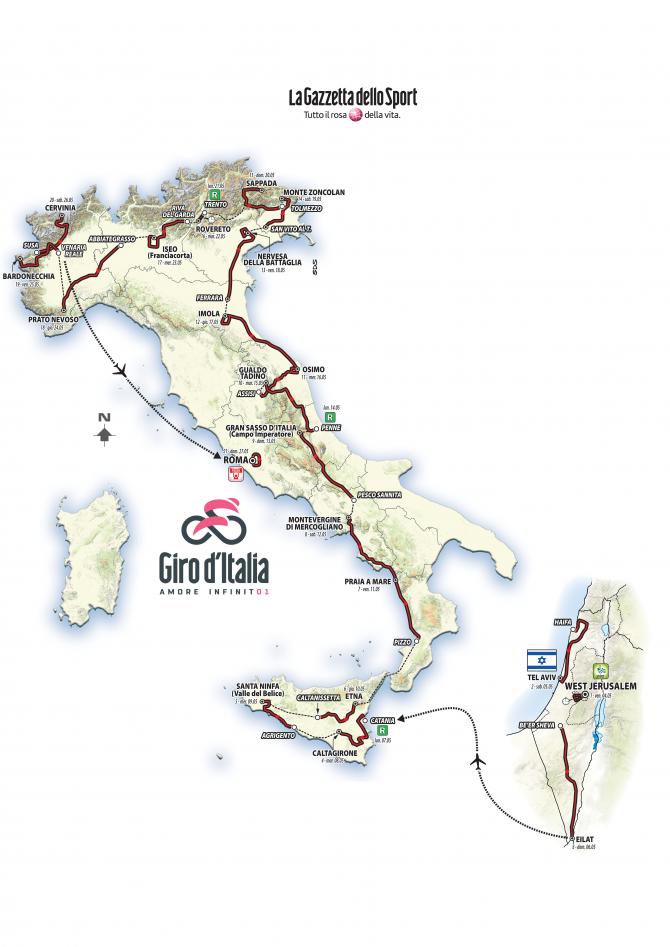
Israel
RCS Sport's headaches ahead of this Giro have not, of course, been limited to the Froome saga, as the decision to award the start to Israel – the first Grand Tour start outside of Europe – has brought problems of its own. When the route was unveiled in November, for instance, RCS Sport's official maps listed the site of the opening time trial as West Jerusalem, seemingly on advice from the Italian ministry for foreign affairs. This in turn saw the Israeli government threaten to withdraw all government support for the Giro unless the wording was changed and the start referred to simply as 'Jerusalem'.
That insistence from the Israeli government laid bare the politically charged nature of this Grande Partenza, and only strengthened calls from groups such as the European Coordination of Committees and Associations for Palestine for a total boycott of the Giro in Israel, with the ECCP citing the "grave and escalating violations of international law and Palestinians' human rights" in the Occupied Territories.
No teams have opted to boycott the Giro as a result of the Israeli start, however, nor have any absent riders cited it as a reason for not participating. Dumoulin, meanwhile, succinctly downplayed security concerns. "I can't say that I'm more afraid than riding on the Champs Elysées. Enough has happened in Paris in recent years," he said.
The Giro begins on Friday, May 4 with a 9.7km individual time trial on a rolling, technical course in the western area of Jerusalem that should provoke greater time gaps than a traditional city centre prologue. Dumoulin will, of course, be expected to shine, and Froome will look to lay down a marker, though Tony Martin (Katusha-Alpecin) and Rohan Dennis (BMC Racing Team) are also among those with a firm chance of claiming the first maglia rosa of the 2018 Giro.
The sprinters ought to have two opportunities to shine on the two road stages in Israel, with flat finishes in Tel Aviv and Eilat, though there is the prospect of crosswinds on the run through the rugged and exposed Negev desert on stage 3. As ever on the Giro's early foreign expeditions, the GC contenders would doubtless settle beforehand simply to make it back to the Bel Paese level pegging with their rivals.
Sicily and the South
After a long and logistically complex transfer from the Red Sea to Italy on the first of three rest days, the Giro hits Italian roads with three stages in Sicily, though to RCS Sport's undoubted disappointment, the lure of home roads wasn't enough to convince two-time winner Vincenzo Nibali (Bahrain-Merida) to return to the race this year. A combination of a relative dearth of sprinters in the field and rolling terrain could present escapees with an opportunity to upset the fast men en route to Caltagirone and Santa Ninfa.
Stage 6, meanwhile, is set to be the first major rendezvous for the general classification contenders, as the Giro returns to the slopes of Mount Etna for a second year in succession. Last year's wind-blasted summit finish proved something of a damp squib, but this time around, the race tackles the volcano by way of a new and steeper approach from Ragalna. The 15km climb includes a long, 14 per cent ramp inside the final six kilometres, which might provide the springboard for somebody to place an important deposit on final victory – as Contador did at Etna in the opening week in 2011. History repeats itself, and all that.
The Giro reaches the mainland on stage 7, where the finish in Praia a Mare offers a chance for the finisseurs to unseat the sprinters, as Diego Ulissi did two years ago. Stage 8 sees the second summit finish of the race, though the category 2 haul to Montevergine should not be stiff enough to provide much separation among the contenders for the maglia rosa.
The opening phase of the Giro ends the following day on a rather more demanding note, however, with the tough, two-part haul to the category 1 summit finish on the Gran Sasso d’Italia. The final 50 kilometres are almost all uphill, with only a short plateau separating the 14.8km haul from the steady but inexorable 26km climb to the finish. Much like the Blockhaus finale a year ago, it won’t be decisive, but it is sure to provide some important pointers as to the rest of this Giro.
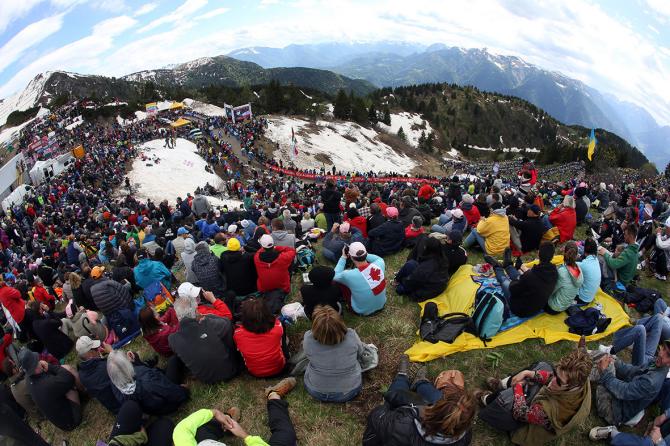
Towards the Zoncolan
On the face of it, the second week of the Giro looks set to be a slow-burning one, although the race can adhere to a logic all of its own regardless of terrain –witness, for example, Astana’s decision to wage an almost daily offensive on Contador in 2015, partly in a (successful) bid to wear him out ahead of the Tour. Froome, Dumoulin and Pinot – all set to line combine the Giro and Tour – can surely expect similar treatment here.
It certainly will be difficult – though not impossible – for any one team to control the peloton on the rolling stages to Gualdo Tadino and Osimo, with particular vigilance required on the finale to the latter, which includes a climb through Filottrano in honour of the late Michele Scarponi.
Stage 12 sees the Giro return to the Imola race circuit where Ilnur Zakarin soloed to a rain-soaked victory in 2015, while the following day's flat, fast run to Nervesa della Battaglia should provide the sprinters with their last obvious opportunity before the grand finale in Rome. Rather helpfully for those inclined to forgo the delights of the high mountains, Venice airport is a stone's throw from the finish line.
In keeping with tradition, the third weekend of the Giro sees two grandstand mountain stages, starting with a summit finish atop the mighty Zoncolan, whose difficulty is only accentuated by the fact that it is preceded by the stiff ascents of the Passo Duran and Sella Valcalda. The Zoncolan's raw numbers speak for themselves – 10.1km at an average of 11.9 per cent – but such extreme gradients can sometimes place an upper limit on the time gained and lost among the favourites. On sustained pitches of 20 per cent, gaps tend to develop in inches rather than simply yawn open, but the Kaiser always makes for a compelling afternoon's racing.
The following day’s stage to Sappada is an evocative one, given that it is the Giro's first visit to the town since Stephen Roche dramatically wrested the pink jersey from his Carrera teammate Roberto Visentini in 1987, and though the famous descent of the Monte Rest is not on the agenda, the sinuous route by way the Passo Tre Croci, Passo di Sant’Antonio and Costalissoio has all the appearances of ambush country.
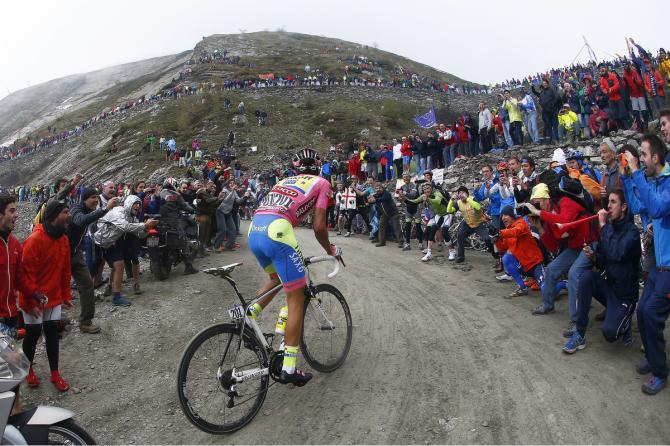
Alpine finale
Perhaps wisely, considering Dumoulin's dominance against the watch achieved a year ago, the organisers have reduced the overall time trialling mileage in this year's Giro and positioned the long time trial later in the race. The final week of the Giro begins with a 34.2km test from Trento to Rovereto that presents little by way of technical difficulty and should – in theory – provoke smaller gaps than last year's stage to Montefalco, where Dumoulin placed such a hefty deposit on final overall victory. The world time trial champion will be the obvious favourite here, particularly given his crushing defeat of Froome to win that crown in Bergen last September, but the third week of a Grand Tour is, of course, very different to a one-off event.
The Giro's by-now traditional wine-themed leg follows on stage 17, with a transitional outing through Franciacorta country to Iseo serving as an aperitivo to three hefty courses of mountains in the high Alps. The antipasto comes with a category 1 summit finish at Pratonevoso, which has featured just twice on the Giro route, with Pavel Tonkov (1996) and Stefano Garzelli (2000) claiming stage honours en route to final overall victory.
Stage 19 to Bardonecchia is perhaps the tappone, or queen stage, of the entire Giro, with four mountain passes across its 184km. First up is the relatively gentle Colle del Lys, followed by the rather more demanding Colle delle Finestre (18km at 9 per cent), the last nine kilometres of which are on gravel roads. At an altitude of 2,178 metres, it is the Cima Coppi, the highest point of the Giro, and on its last appearance in 2015, it almost cost Contador overall victory. The category 2 ascent to Sestriere is next on the agenda, before the short but viciously steep haul up the Jaffereau (7.5km at 9.1 per cent with stretches at 14 per cent) to the finish.
The penultimate stage to Cervinia is no easier, with three category 1 climbs in its 214km – the Col Tsecore, the St Pantaléon and the long haul to the finish. There is a remarkable 4,000 metres of total climbing on the stage, almost all of it crammed into the final 90 kilometres of the stage. Coming on the final weekend of a demanding Giro, it seems likely to be race of attrition. Three weeks of work could be undone in one interminable afternoon. The one consolation is that the finish of the Giro – a flat circuit race in Rome's historic centre – is (metaphorically) visible from the summit.
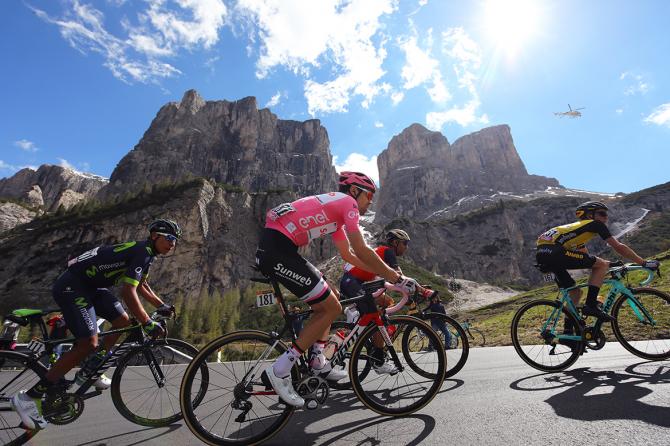
The contenders
The aforementioned Froome and Dumoulin are the favourites to carry the pink jersey to Rome, though both men have been relatively subdued thus far in 2018 – understandably, perhaps, given that they each plan to line out at the Tour in July. Dumoulin’s early season was blighted by mechanical problems, illness and crashes, but after a long block of altitude training in Sierra Nevada, he looked very sharp indeed at Liège-Bastogne-Liège.
Froome’s last Giro appearance came in 2010, when he was excluded from the race for taking a tow from a motorbike on the Mortirolo, and Sky’s record in the Giro – a race that seems to throw up more variables than the Tour – is underwhelming. It remains to be seen, too, how Froome handles the ruminations over his salbutamol case, though he has won four Tours in a usually pressurised environment.
Pinot was happily flying at his preferred altitude – well under the radar – in early 2018, but victory at the Tour of the Alps confirmed the reports about the Frenchman’s fine condition. The weight of expectation at the Tour has never been to his liking, but the italophile Pinot enjoyed his experience at last year’s Giro, and he will set out from Israel with genuine and justified designs on final overall victory – just so long as his time trialling holds up on stage 16.
Aru’s relative travails in the first part of the season might be overstated given that the Sardinian has never recorded much by way of results ahead of the Giro, where he has twice finished on the podium. He is not to be underrated. Miguel Angel Lopez’s first tilt at the race is sure to provide excitement, and while time trialling and a tendency towards the occasional giornata no might limit his ambitions to a podium place, he is backed by an impressively strong Astana line-up.
Mitchelton-Scott’s tandem of Simon Yates and Esteban Chaves presents them with options in the high mountains, while Domenico Pozzovivo (Bahrain-Merida) impressed in the Alps and the Ardennes last week. The progress of Michael Woods (EF Education First-Drapac) and George Bennett (LottoNL-Jumbo) will be worth tracking, as will the efforts of youngster Sam Oomen (Sunweb), Louis Meintjes (Dimension Data), Alexandre Geniez (AG2R La Mondiale) and Rohan Dennis (BMC).
The most notable sprinter in the field is Elia Viviani (Quick-Step Floors), who will look to replicate teammate Fernando Gaviria’s four-stage haul of a year ago. Sacha Modolo (EF-Drapac), Sam Bennett (Bora-Hansgrohe) and Jakub Mareczko (Wilier Triestina) seem best placed to challenge him. Puncheurs like Diego Ulissi (UAE Team Emirates) and Alexey Lutsenko (Astana) also have the terrain on which to shine, provided team duties allow it. The Giro, as is its wont, has something for everyone.
Get The Leadout Newsletter
The latest race content, interviews, features, reviews and expert buying guides, direct to your inbox!

Barry Ryan was Head of Features at Cyclingnews. He has covered professional cycling since 2010, reporting from the Tour de France, Giro d’Italia and events from Argentina to Japan. His writing has appeared in The Independent, Procycling and Cycling Plus. He is the author of The Ascent: Sean Kelly, Stephen Roche and the Rise of Irish Cycling’s Golden Generation, published by Gill Books.
Latest on Cyclingnews
-
USA CRITS: Lucas Bourgoyne goes back-to-back at Hapeville Crit while Aylena Quevedo takes pro women's win
Women's Kingdom Elite team goes one-two with Jeydy Praderas on podium ahead of Erica Carney -
'We should just go for it' - Tadej Pogačar nervous but confident about Paris-Roubaix debut
UAE Team Emirates prepare to take on Van der Poel, Pedersen, Van Aert in the Hell of the North -
Lukáš Kubiš inspired by Peter Sagan as he leads Unibet Tietema Rockets charge into debut Paris-Roubaix
Slovakian revelation in Spring Classics heads up French squad at the biggest race in their history -
Paris-Roubaix 'never gets easier' says Zoe Bäckstedt after supporting teammates Dygert and Consonni to top 10s
Chloé Dygert top finisher in chase group for Canyon-SRAM zondocrypto despite stomach issues
